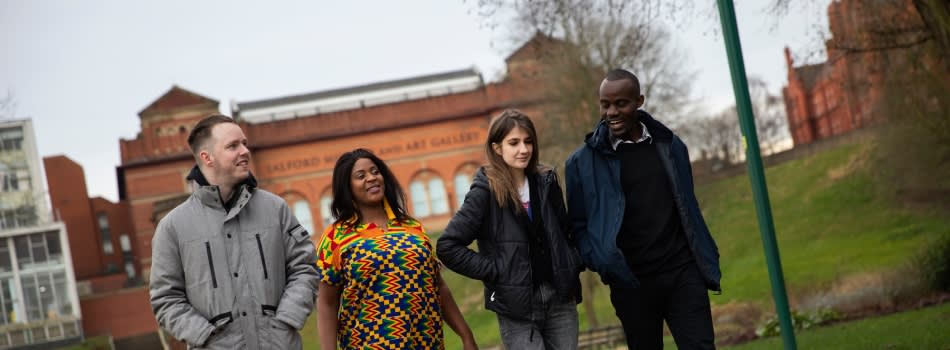Information on this PhD research area can be found further down this page under the details about the Widening Participation Scholarship given immediately below.
Applications for this PhD research are welcomed from anyone worldwide but there is an opportunity for UK candidates (or eligible for UK fees) to apply for a widening participation scholarship.
Widening Participation Scholarship: Any UK candidates (or eligible for UK fees) is invited to apply. Our scholarships seek to increase participation from groups currently under-represented within research. A priority will be given to students that meet the widening participation criteria and to graduates of the University of Salford. For more information about widening participation, follow this link: https://www.salford.ac.uk/postgraduate-research/fees. [Scroll down the page until you reach the heading “PhD widening participation scholarships”.] Please note: we accept applications all year but the deadline for applying for the widening participation scholarships in 2024 is 28th March 2024. All candidates who wish to apply for the MPhil or PhD widening participation scholarship will first need to apply for and be accepted onto a research degree programme. As long as you have submitted your completed application for September/October 2024 intake by 28 February 2024 and you qualify for UK fees, you will be sent a very short scholarship application. This form must be returned by 28 March 2024. Applications received after this date must either wait until the next round or opt for the self-funded PhD route.
------
Project description: The global air transportation market was valued at $125.9 billion in 2020 and is projected to reach $334.5 billion by 2028, growing at a CAGR of 2.80%% from 2021 to 2028. The aviation industry supports around 4% of the world's gross domestic product (GDP). At the same time the air transportation industry is under enormous pressure in terms of compliance with the United Nations Sustainability Development Goals. Fifteen out of seventeen UN SDGs have been adopted by the International Civil Aviation Organisation and reflected in its vision for the development of the air transportation industry. Circular economy considerations for airport terminals have already become part of the ICAO Eco Design of Airport Buildings Toolkit.
Airports represent critical national and international gateways. As an important part of the air transportation industry, they need to be compliant with its sustainability agenda. There are many great and innovative examples of materials circularity and sustainability adopted at airport terminals around the world, including Oslo Airport, LaGuardia Airport, Zurich Airport, Geneva Airport, Guadalajara International Airport, Galapagos Ecological Airport, Hyderabad International Airport, Indianapolis Airport, Pittsburgh Airport, Delhi Indira Gandhi Airport, etc.
Research may include but is not limited to the problems below:
- Benchmarking analysis of materials circularity and sustainable materials management at airport terminals around the world.
- Operational requirements and limitations for airport terminals.
- Materials selection criteria, including carbon analysis (embodied / embedded and operational), resource efficiency, performance, aesthetics, etc.
- Materials circularity, i.e., use of reused and recycled materials and products, which needs to be considered and ideally visible with an airport terminal building.
- Building use, wear and deterioration, analysis of maintenance needs.
- Consideration of an airport terminal building in terms of layers with each layer operating at a different rate of repair, replacement and remanufacture.
- Extension of service-life, including maintenance, repair, remanufacture, replace, etc.
- New business models for buildings, e.g., leasing.
- Energy efficiency in big open spaces.
- Design for disassembly / deconstruction.
- Materials development and tests.
- Development of digital twins for management.

 Continue with Facebook
Continue with Facebook




